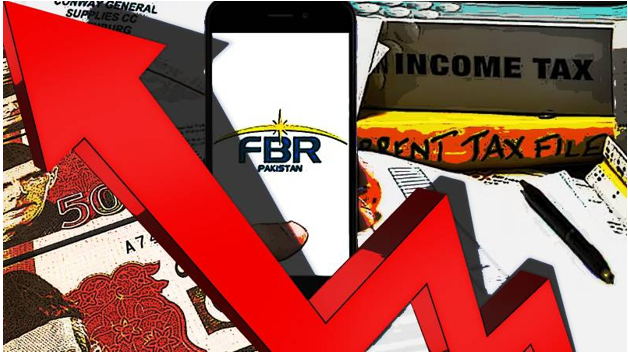INP-WealthPk
Moaaz Manzoor
Experts term equity and transparency in tax policy as the cornerstone of addressing Pakistan’s perennial revenue shortfall problem. They also call for systemic reforms to curb inefficiencies and bolster the economy, reports WealthPK.

Speaking to WealthPK, Dr Ikramul Haq, a tax expert and Advocate of the Supreme Court, highlighted the challenges faced by the Federal Board of Revenue (FBR) and the provincial tax agencies. “The structural inefficiencies, lack of infrastructure and inadequate trained human resources have significantly contributed to the persistent tax gap,” he said.
He emphasised that corruption and inefficiencies further compounded the issue, making it harder to achieve fiscal targets. Haq said the FBR’s reliance on regressive taxation methods, primarily indirect taxes, has exacerbated economic inequality and hindered business growth. He noted that successive governments have failed to adopt a fair tax system aligned with the ability-to-pay principle.
“Instead, tax revenue targets are met through withholding taxes and increased rates, burdening existing taxpayers and discouraging compliance.” Haq emphasised that this approach increases the cost of doing business and inflation, leading to rising wealth inequalities. He added that the imbalance in provincial taxation further aggravates the issue. “Provinces, heavily reliant on federal transfers under the National Finance Commission (NFC) Award, failed to impose progressive taxes on affluent absentee landowners, such as agricultural income tax.”
The tax expert criticised this inaction: "The provinces have been dejectedly unsuccessful in mobilising resources, highlighting a glaring lack of fiscal accountability.” Haq further criticised the inefficiency of the tax administration, referring to the recently tabled Tax Laws (Amendment) Bill, 2024, terming it anti-people and anti-business. He emphasised that such legislation would “open new vistas for corruption” instead of broadening the tax base. He advocated for measures such as simplifying tax procedures, reducing rates, and incentivising documentation of the informal economy.
Meanwhile, Eng Ahad Nazir, Associate Research Fellow and Head of the Centre for Private Sector Engagement, called for a paradigm shift in tax policy. He stressed the need for a fair, broad-based, and transparent tax system for fiscal stability and economic growth. He stated that the agriculture sector, a major contributor to GDP, remains under-taxed, while the informal economy accounts for a significant portion of economic activity. “Addressing this requires a mix of digitisation, better tax administration and incentives for formalisation.
The government’s target of Rs13 trillion in tax revenues by the next fiscal year is ambitious but achievable if reforms focus on compliance and equity. Over-reliance on indirect taxes, however, could harm consumers and businesses. Therefore, the emphasis should be on progressive taxation,” Nazir emphasised. Pakistan’s revenue shortfall underscores the need for a transparent, equitable tax policy framework.
Experts suggest prioritising structural reforms to reduce inefficiencies, broaden the tax base, and lower rates to foster compliance. Addressing fiscal mismanagement and empowering provinces with progressive taxation mechanisms could pave the way for sustainable economic recovery. Without these changes, Pakistan risks perpetuating its debt and economic stagnation cycle.
Credit: INP-WealthPk













